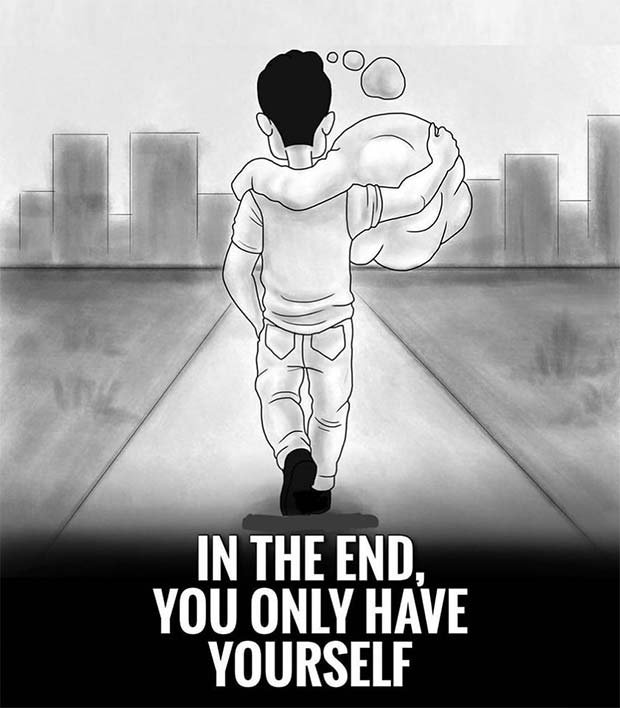In the end – you only have yourself
This quote carries a profound message about self-reliance, personal responsibility, and the idea that, ultimately, individuals must depend on themselves. It suggests that, despite the presence of others in one’s life, there are situations or aspects in which a person must rely on their own abilities, decisions, and resilience. Here are several key interpretations of this quote:
- Self-Reliance: The quote underscores the importance of being self-reliant. It suggests that, when it comes down to crucial moments or critical decisions, individuals can only truly depend on their own resources, skills, and inner strength.
- Personal Accountability: The quote implies a sense of personal accountability. It suggests that individuals are responsible for their own actions, choices, and well-being. Taking ownership of one’s life is a central theme, emphasizing that the outcomes and consequences ultimately rest on the individual.
- Independence: It highlights the concept of independence, suggesting that individuals should cultivate a level of autonomy and self-sufficiency. While relationships and connections with others are valuable, the quote emphasizes the importance of not relying solely on external sources for fulfillment or support.
- Self-Discovery: The idea that “you only have yourself” can also be interpreted as an encouragement for self-discovery. It suggests that individuals should invest time in understanding themselves, their values, and their goals, as this self-awareness becomes the foundation for navigating life’s challenges.
- Inner Strength: In difficult times, the quote implies that individuals must tap into their own reservoirs of inner strength, resilience, and determination. It underscores the idea that personal strength is an invaluable asset when facing adversity.
- Emphasis on Individuality: While relationships with others are important, the quote highlights the uniqueness and individuality of each person. It suggests that, in the grand scheme of life, one’s individual journey and experiences play a significant role.
- Life’s Transience: The quote could also convey the idea that life is transient, and external circumstances or relationships may change. In the end, one’s own character, choices, and personal development become constants.
It’s essential to note that this quote doesn’t negate the importance of relationships, connections, or support systems. Instead, it emphasizes the idea that individuals should cultivate a strong sense of self, resilience, and personal responsibility, recognizing that, ultimately, they are the architects of their own lives.








